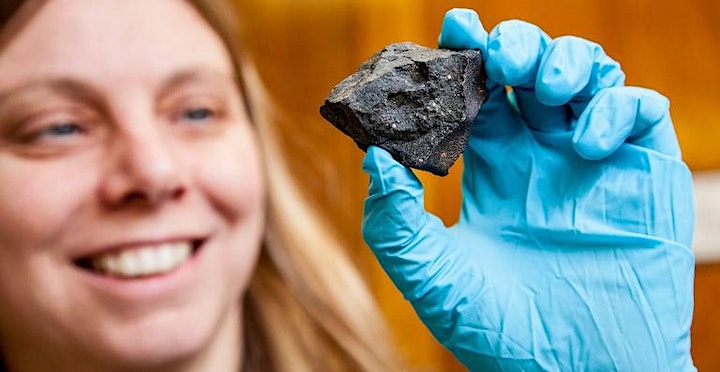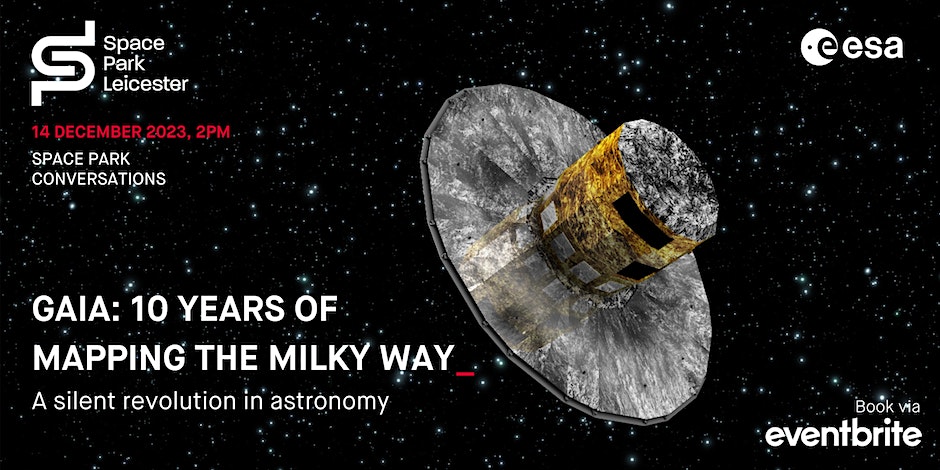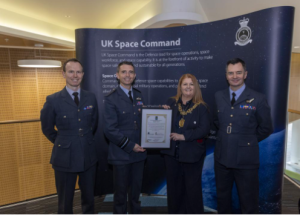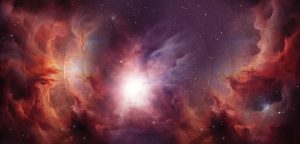Must-Attend Space Events in the UK: December 2023
30th Nov 2023
The final month of the year offers a stellar lineup of events that cater to space enthusiasts, young aspiring astronauts, and families eager to explore the mysteries of the universe. December in the UK sparkles with opportunities to engage in space exploration, cosmic wonders, and educational experiences that transcend the ordinary. Here’s your guide to the can’t-miss space events taking place across the country this month.
COP28 UAE – United Nations Climate Change Conference
When: 30 November – 12 December
Where: Dubai, UAE
Even though this event will not be held in the UK, we couldn’t help but include it since it’s the 28th UN climate change summit that brings together world leaders, environmental experts, activists, and policy-makers. The chief executive of the UAE state-owned oil company Adnoc, Sultan al-Jaber, will be presiding over the conference.
A unique feature of COP28 UAE is the inclusion of a Space Pavilion for the first time, spearheaded by the UAE Space Agency. Moreover, on the 6th of December, at Space Park Leicester, you’ll have the opportunity to discuss the ongoing event – COP28. From interactive activities to thought-provoking panel discussions, this event promises to be an inspiring platform for sharing ideas and driving positive change.
Women in Science: Space Tour

When: 5 December
Where: Natural History Museum, Cromwell Road London SW7 5BD United Kingdom
Take a guided tour of our first-floor Hintze Hall balconies and Minerals Gallery and hear the gripping stories of female scientists whose contributions changed our understanding of space. Encounter numerous treasures, including rare meteorites, as you learn about the research of female space scientists past and present, including some who’ve worked at the Museum.
Imperial Lates: Space
When: 7 December
Where: Imperial College London, College Main Entrance Exhibition Road London SW7 2AZ United Kingdom
Ready for a free night of cosmic wonders and celestial revelry? Join an enchanting evening where the universe’s wonders come to South Kensington. From driving Mars rovers and building lunar bases to icy moon cocktails, intergalactic art, and extra-terrestrial Xmas decorations – this promises to be an out-of-this-world evening of discovery with our Imperial space scientists. Throw in junkyard astronaut suits, mince pies, live meteorite impacts, and a DJ not scared to play the odd Christmas classic, and you’ll experience a great evening of universal entertainment.
Stargazing and Talk ‘Losing the Cosmos’
When: 9 December
Where: Loch Torridon Community Centre, Torridon Hall Torridon IV22 2EZ United Kingdom
Enjoy an evening of stargazing, including a laser-guided tour of the constellations and views through telescopes of planets, galaxies, stellar nurseries, star clusters, and more (weather permitting). Learn how to protect and promote your dark skies in the informative talk ‘Losing the Cosmos.’ If the weather isn’t clear, don’t worry, as there will be lots of other space-themed activities on offer indoors: telescope demos, meteorites, virtual reality headsets (Scale of the Universe), projections of the night sky (flat-screen) and Q&A with our astronomers.
Dark Skies on a Winter Night
When: 13 December
Where: The Station Inn, Low Sleights Road Carnforth LA6 3AS United Kingdom
A magical evening of stargazing at The Station Inn, Ribblehead! Get ready to be amazed as The Starsmith takes you on a cosmic journey through the solar system, learning what you can see with your eyes, binoculars, and telescopes. There will also be a brief introduction to nightscape photography for those budding photographers.
Weather permitting, you will then move outside, look through some large Skywatcher telescopes, and view the amazing night sky.
Guide to the Walthamstow Night Sky: Comets, Meteors & Asteroids
When: 14 December
Where: Walthamstow Wetlands, Walthamstow Wetlands 2 Forest Road Walthamstow, London N17 9NH United Kingdom
What’s the difference between comets, meteors, and asteroids?
What is a shooting star? Is there a difference between a meteor, a comet, or an asteroid? Where do they all come from? Stow stargazers will share their perspective during this informative evening, discussing these so-called Near Earth Objects in the skies. The evening will culminate in an exclusive guided walk through Walthamstow Wetlands with a chance to try to see some of the Geminids meteor shower (weather permitting).
Gaia: 10 years of mapping the Milky Way

When: 14 December
Where: Space Park Leicester, 92 Corporation Road Space City Leicester LE4 5SP United Kingdom
The European Space Agency’s Gaia mission has produced a series of new star catalogues and is celebrating its 10th anniversary in space. The Gaia spacecraft produces measurements of unprecedented accuracy and provides such data for around 2 billion objects. The results are spectacular, reaching out into every corner of astronomy.
At this event, you’ll have the opportunity to learn about the incredible achievements of Gaia and its impact on our understanding of the cosmos. Discover how this remarkable space observatory has revolutionised our knowledge of the stars in the Milky Way and beyond.
Space Kids – Searching for Aliens
When: 20 December
Where: Kielder Observatory, Black Fell, Kielder, Hexham NE48 1EJ, United Kingdom
An engaging, interactive, and fun event for kids as they’ll look at how light moves through the universe and how astronomers can use the hidden secrets within light to discover the existence of planets beyond our solar system. These hidden messages can also be translated to help us discover life on those planets.
You will start by learning all about our solar system, how it formed, and how planets differ. Could there be life on another planet? The little ones also will have some space rocks on hand for you all to explore – you could find yourself holding a piece of rock approximately 4.5 billion years old or even a fragment of the Moon or Mars!






Thank you for your comment! It will be visible on the site after moderation.